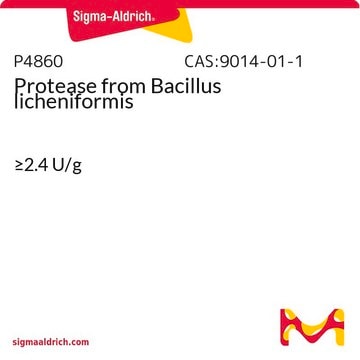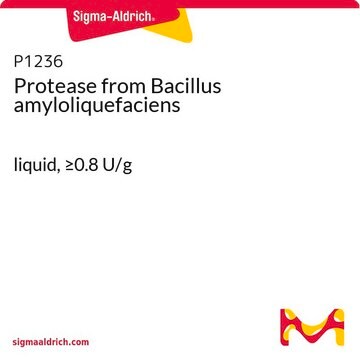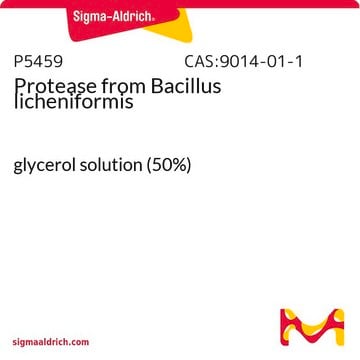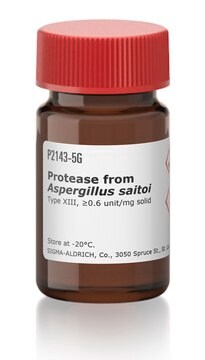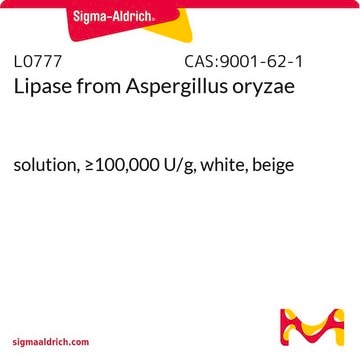P5985
Protease from Bacillus sp.
liquid, ≥16 U/g
Sinónimos:
Everlase 16.0 L
About This Item
Productos recomendados
biological source
Bacillus sp.
Quality Level
form
liquid
specific activity
≥16 U/g
mol wt
20--30 kDa
storage temp.
2-8°C
¿Está buscando productos similares? Visita Guía de comparación de productos
Categorías relacionadas
General description
Application
Biochem/physiol Actions
Legal Information
signalword
Danger
hcodes
Hazard Classifications
Aquatic Chronic 3 - Eye Dam. 1 - Resp. Sens. 1
Storage Class
10 - Combustible liquids
wgk_germany
WGK 2
ppe
dust mask type N95 (US), Eyeshields, Faceshields, Gloves
Certificados de análisis (COA)
Busque Certificados de análisis (COA) introduciendo el número de lote del producto. Los números de lote se encuentran en la etiqueta del producto después de las palabras «Lot» o «Batch»
¿Ya tiene este producto?
Encuentre la documentación para los productos que ha comprado recientemente en la Biblioteca de documentos.
Los clientes también vieron
Nuestro equipo de científicos tiene experiencia en todas las áreas de investigación: Ciencias de la vida, Ciencia de los materiales, Síntesis química, Cromatografía, Analítica y muchas otras.
Póngase en contacto con el Servicio técnico


